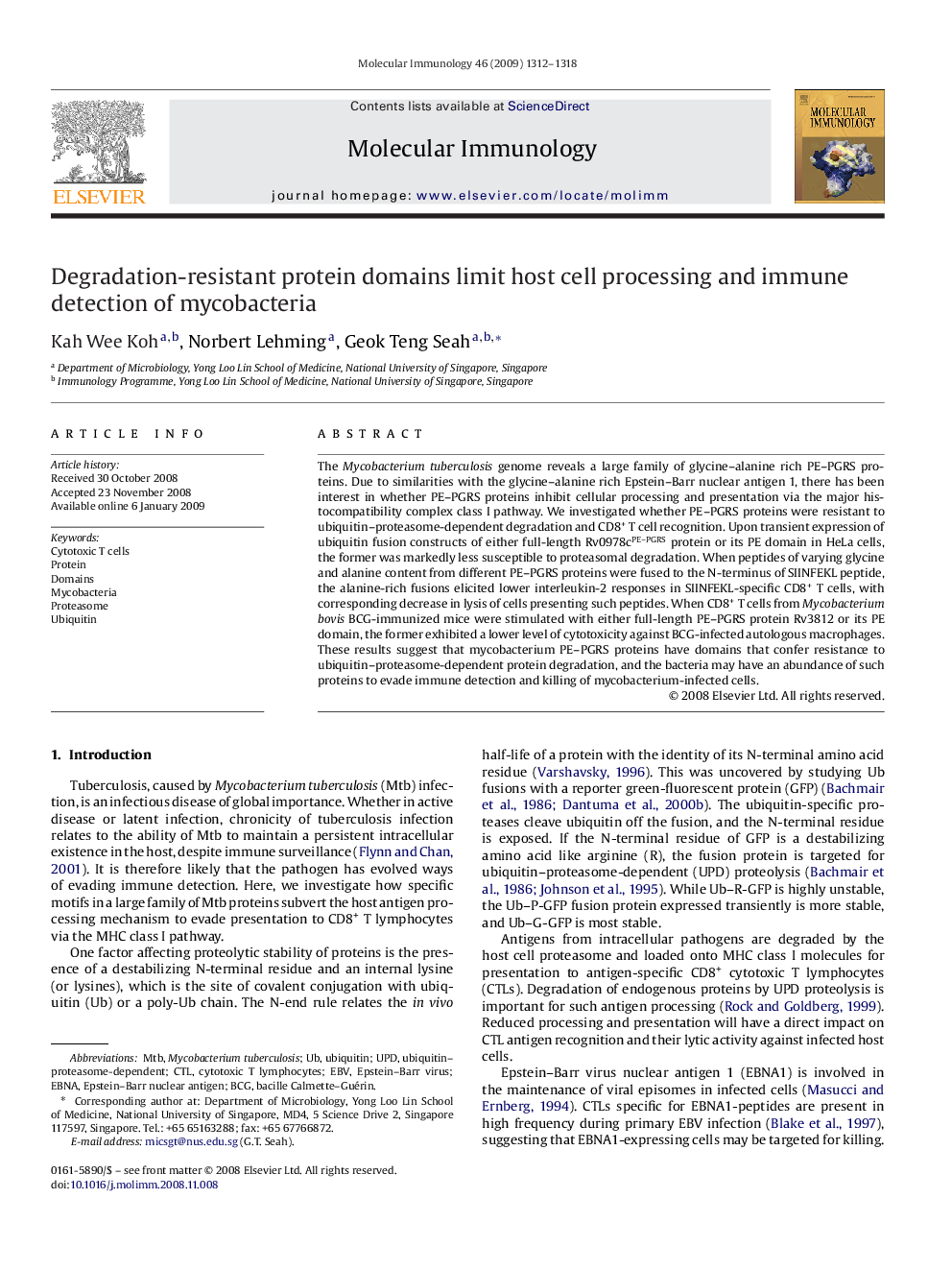| Article ID | Journal | Published Year | Pages | File Type |
|---|---|---|---|---|
| 5917881 | Molecular Immunology | 2009 | 7 Pages |
The Mycobacterium tuberculosis genome reveals a large family of glycine-alanine rich PE-PGRS proteins. Due to similarities with the glycine-alanine rich Epstein-Barr nuclear antigen 1, there has been interest in whether PE-PGRS proteins inhibit cellular processing and presentation via the major histocompatibility complex class I pathway. We investigated whether PE-PGRS proteins were resistant to ubiquitin-proteasome-dependent degradation and CD8+ T cell recognition. Upon transient expression of ubiquitin fusion constructs of either full-length Rv0978cPE-PGRS protein or its PE domain in HeLa cells, the former was markedly less susceptible to proteasomal degradation. When peptides of varying glycine and alanine content from different PE-PGRS proteins were fused to the N-terminus of SIINFEKL peptide, the alanine-rich fusions elicited lower interleukin-2 responses in SIINFEKL-specific CD8+ T cells, with corresponding decrease in lysis of cells presenting such peptides. When CD8+ T cells from Mycobacterium bovis BCG-immunized mice were stimulated with either full-length PE-PGRS protein Rv3812 or its PE domain, the former exhibited a lower level of cytotoxicity against BCG-infected autologous macrophages. These results suggest that mycobacterium PE-PGRS proteins have domains that confer resistance to ubiquitin-proteasome-dependent protein degradation, and the bacteria may have an abundance of such proteins to evade immune detection and killing of mycobacterium-infected cells.
